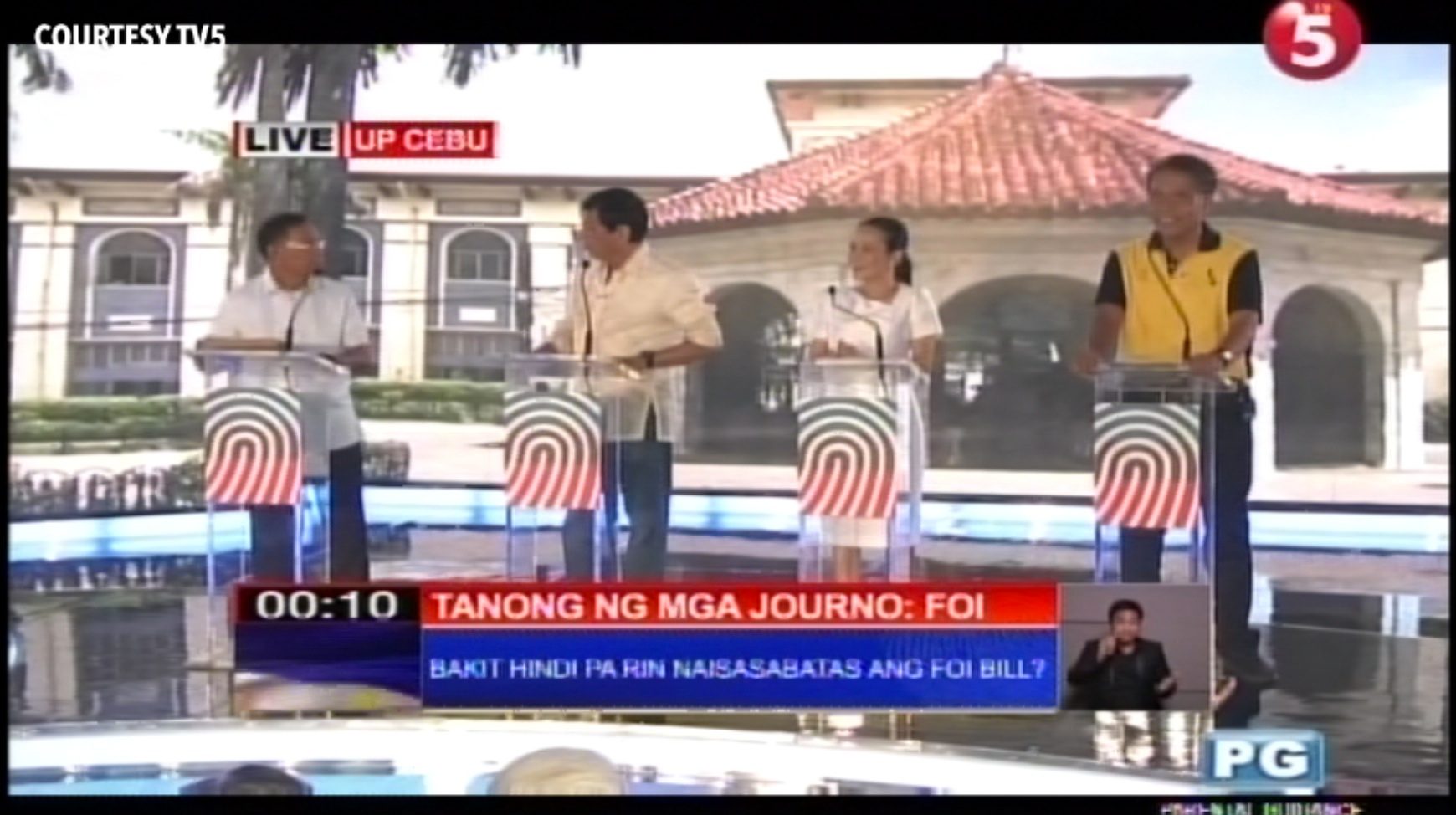SUMMARY
This is AI generated summarization, which may have errors. For context, always refer to the full article.

At the conclusion of the second presidential debate, the usual suspects of political commentators and analysts flooded our social media feed with their opinions about how well it went and who won. Many thought this debate was short on substance, that nothing new was learned about candidates and their policies, and that the debate was not about policy but personality.
Yet voters were talking about learning the candidates’ positions on issues that up to now had not yet been thoroughly discussed, like divorce. Why the disconnect?
The first problem lies in the assumption that the vast majority of Filipinos already know about things like balancing renewable energy with coal, about the proportion of the Yolanda budget that has been spent, or about candidates’ willingness to kill and be killed to stamp out crime. (WATCH: Filipino voters are ‘rational’ – analyst)
If you are reading this on Rappler, then chances are you knew all of this before the debates, but if you rely solely on television for news, odds are high that you did not.
It’s about character
The second and more important problem, is that “substance” is often defined solely as issues or platform, or even worse, programs. It is easy to promise programs, the hard part is convincing people you can deliver on them.
Everybody wants to expand the 4Ps, but which one of them will deliver? Everybody wants to stamp out corruption, but which one of them has the moral authority to do so? When candidates are the same on issues, the differences that define them lie in their character.
We should stop assuming that “personality politics” is about looks and surnames and charm alone. It is not just about personality, it is about character. And character is a substantive electoral issue.
You may agree on one candidate’s entire platform and policy proposals, but you shouldn’t vote for that person if you cannot trust his/her character.

Delays and character
The delay of the debates’ start-time, and the drama behind it, revealed many important character traits that a voter should know about their candidates. Who keeps it together best under pressure? Who argues to be exempt from the rules, even if it was the result of miscommunication? Who calls out the person who breaks rules? Who were the bullies and who were the victims? Which candidates can roll with the punches? These are not trivial indicators of character.
Running a country is not an easy job, if a person cannot handle a small hurdle without throwing a fit, or if a candidate loses perspective when the unexpected happens, then we should question whether they are fit to lead.
The point of a debate is not only for procedures to go smoothly, for candidates to communicate platforms and plans, and for people to sit politely and listen while moderators make sure the rules are followed.
The point of a debate is to help voters make informed decisions, get them involved in the political process, and increase their engagement and interest in elections.
Measure of success
Many descriptors were used to characterize Sunday’s debate. Here’s a sampling: petty, uncivilized, dogfight, catfight, children bickering, among others. All this may be true, and if the standard of success is whether the program started early, candidates stuck to the rules, and questions were answered without drama, then this one would have been viewed more as a debacle rather than a debate.
But if our standard is whether voters ended up more excited about their choices, more learned about the character of candidates, armed with more information about issues, and felt more engaged in the process of selecting their leaders, then it was certainly a success.
The voters win no matter how unruly a debate gets, because in the end, the conflict reveals each candidates’ character.
Media outlets, columnists, and journalists spent all evening weighing in on which candidate “won” the debate. If you are wondering why these analyses do not feel like they ring true, it’s because your own reaction to each of the candidates is guided by some gut feeling that you can trust one of them and not the others.
You can’t put it on a policy scoreboard, but it sure feels authentic. – Rappler.com
Clarissa C. David is a Professor at the UP College of Mass Communication and a fellow of Social Weather Stations Inc. She is also the 2015 Outstanding Young Scientist awardee for social science.
Add a comment
How does this make you feel?
There are no comments yet. Add your comment to start the conversation.